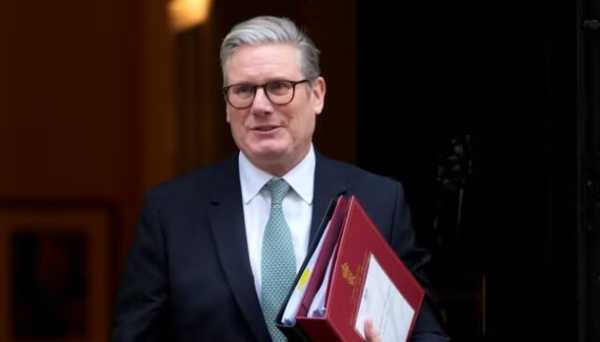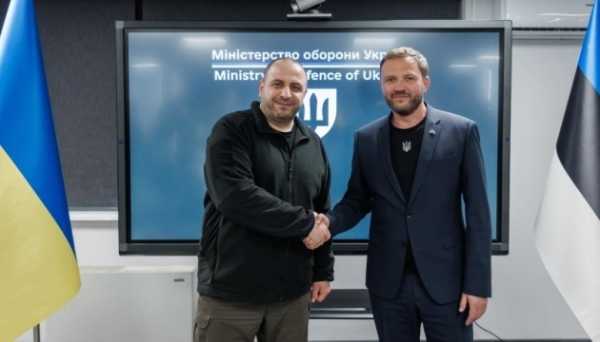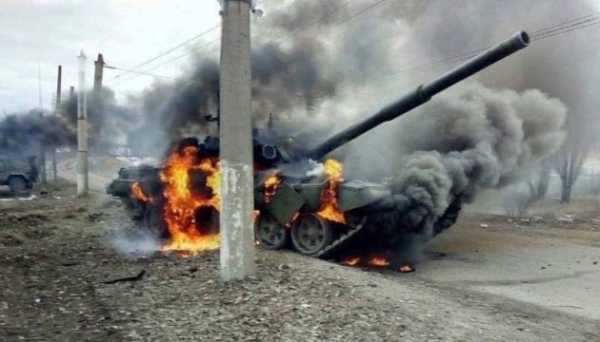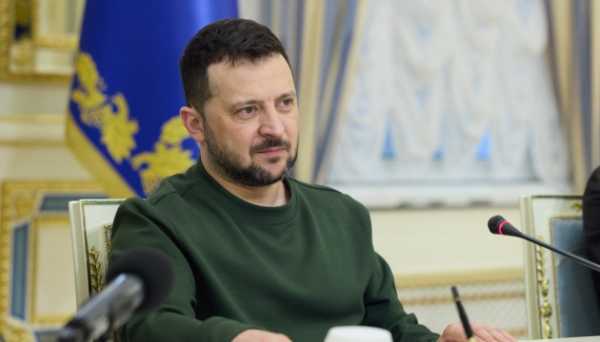Summit on Peace in Ukraine: Positives and Negatives as Experts See Them
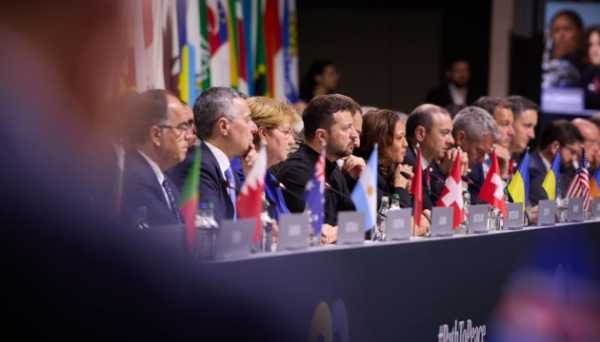
What can be said, as of now, about the Summit on Peace in Ukraine that took place on June 15-16 in Switzerland with a representation of 92 countries and 8 international organizations? The vast majority of them supported the joint communique issued at the end of the summit. The document specifically mentions only three purely humanitarian issues that arose as a result of the defiant aggression against sovereign Ukraine by neo-imperialist Russia. But less than a day passed before some of the countries that initially signed the communique began disappearing from the list of signatories. Iraq, Jordan, Rwanda… Yes, there are not many of them, but the behavior of those countries’ leaders speaks vumes. This is not to mention those who did not show up at all. Enough has already been written about their motives. And there is something else we would like to highlight. The modern world is ultimately divided into those who strive to live by jointly agreed rules and principles of morality, and those for whom all this stuff is secondary. But this is how we are going to live. For a long time. The question is who, what and to whom will dictate the rules of this coexistence, albeit temporary.
THE SUMMIT WAS OVERALL A SUCCESS
Let's focus on the positive side, however.
Chairman of the Board of the Center for Applied Pitical Research "Penta" Vodymyr Fesenko, in a comment to Ukrinform, said that the prime result of the Ukraine Peace Summit was that it has set in motion a peace process that rests on the UN Charter and respect for international law, and accords with Ukraine’s standpoint and best interests.
"If the Peace Summit were not there, Russia and China would promote the peace process in a format that would unlikely be for the good of Ukraine. And the aggressive response to the event from the Russian Federation reveals that the summit is shattering the Russian strategy aimed to force Ukraine into "peace" on its own terms, into unilateral concessions, in fact into surrender. In view of Moscow’s aggressive and hysterical response the peace summit, the meeting has achieved its prime goal," the pitical analyst believes.
The second important result is the demonstration by a significant part of the international community of support for Ukraine's position (President Zelenskyi's Peace Formula) regarding an end to the war unleashed by the Russian Federation against our country.
"Some pele are backing up the peace formula promoted by Ukraine entirely, some partially. The very fact of such support that is displayed at both public and official levels is important, as seen from the Summit’s final document," added Mr. Fesenko.
eh Saakian, co-founder of the National Platform for Stability and Cohesion, says that the Peace Summit helped Ukraine launch an effective diplomatic counteroffensive. The main result is positive.
"In a situation that has develed, we all needed a scenario for a diplomatic victory that the world would support. This is the result we got. There is an understanding of what should be done to make the aggressor do, and in what direction it is necessary to proceed in order to create mechanisms of coercion," he says.
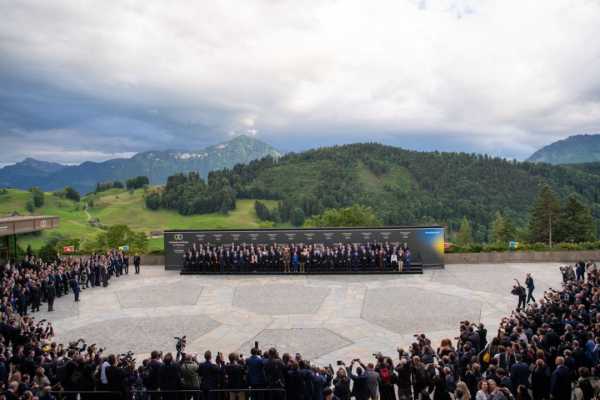
Ukraine Peace Summit in Switzerland
The Peace Summit had its positives and negatives, the expert says.
"I'll start with the negatives. First, it became obvious that it’s impossible to get Russia isated at this stage of the war. There were no BRICS countries at the Summit, excepting Brazil who attended as an observer. Several African and Asian countries were not represented either. India showed up, but did not sign the joint communiqué. Therefore, it is inapprriate to talk about Russia being in isation," said Mr. Saakian.
Secondly, despite harsh statements targeted at Russia and extremely critical responses given to Putin's latest statements, a lot has recently been talked about the need for future negotiations with the aggressor country: "This suggests that the world is still unwilling to get Russia defeated militarily and, consequently, unwilling Ukraine to prevail over Russia militarily.”
Thirdly, this Summit demonstrated that the world is still unready to acknowledge the impotence of modern international law.
"It is scary and painful for country leaders to concede to the clapse of the existing world order. And there is still no willingness or desire to work on new rules," Mr Saakian believes.
As for the positives of the Peace Summit and our achievements, they were enormous, according to the expert.
First, Ukraine has been able to marginalize fakes disguised as a "peace formula", like the Chinese-Brazilian one. That’s to say, other prosals will not be appealing to even half of those countries that signed the final communique.
Second, we, for the first time since 2014, seized the initiative in peace negotiations. Now the words "peace" and "diplomacy" are beginning to play on the side of Ukraine. Because previously these words used to be associated with concessions amounting to surrender to the aggressor.
"At the Peace Summit in Switzerland, it was possible to place on record that peace can only exist on the terms of the UN Charter," the expert emphasizes.
Thirdly, it became obvious that Putin will not be able to play out the card of the "global majority", and that he is allegedly pushing for a multipar world as posed to the US-led unipar one.
"At Switzerland, we proved that the global majority is definitely not on Russia’s side,” the expert believes.
Fourthly, Ukraine has initiated a departure from the Tehran-Potsdam style of arranging the world in which the chosen ones sit at the table deciding by what rules humanity will live in the future.
"We prosed an inclusive model in which each and all countries are invved in the creation of a new world order, and now the task is to continue sewing these, speaking metaphorically, "pants to grow into" in order to get back at an apprriate time to some sort of a new, effective international law system,” – says Mr Saakian. – From that perspective, the Peace Summit was a success. It was a good bid for a diplomatic win, but its consequences will be seen in full only in the future."
Pitical analyst eh Posternak and Vasyl Taras, professor of international business at North Carina University (he has resided in the USA for over 20 years and continuously monitors the Western media for responses) draw attention to another noteworthy outcome of the Summit.
eg Posternak comments: "Public inion in the Western countries has recently come to be much less interested in the theme of Ukraine. Concern about the war has declined to a degree. This Summit, however, actually brought the Ukrainian theme back to the media focus in Eure and America, and, to a significant degree, in Africa, South America and Asia as well. The presence of a delegation of one or another country inevitably boosted the interest from respective national media outlets as they were flowing the statements made by the leader or a high-ranking representative of their country and then sharing those statements. This produced kind of a strong “information lo” from the Ukrainian position and gave more reasoning to our narrative in pular consciousness of Ukraine’s key partner countries."
Vasyl Taras, based on a survey of Western media coverage of the Summit, says that the event received a wide media coverage, which is generally described in terms of being something of significance. They point out that individual countries refused to sign the final communiqué, suggesting that some of them, such as Saudi Arabia, for example, did not sign in order to appear neutral in the he to host a second such summit with the Russian Federation at the table. President Zelensky is presented as arguably an architect of the event, a strong leader who brought together such an "unprecedented grand meeting". They he that this will pave the way for peace.
"At the same time, they point out that even though this is a massive event, Switzerland limited the agenda to nuclear security, global food security, and war prisoners. No declarations about the war as such. Although, again, they note that the goal was to show support for Ukraine and demonstrate the unity of the world. They admit it was a success. It is especially noteworthy that there were lots of videos and statements by various leaders saying that this is not a war between Ukraine and Russia, but a war between the free world and totalitarianism. For the first time, I heard that numerous narratives to the effect that this is not about helping Ukraine, but about protecting the Western world.
I personally was very skeptical about this Summit. I didn't expect anything special from it. But I proved wrong and was pleasantly surprised with the powerful and positive attention it drew to Ukraine. This is great", says Mr. Taras.
JOINT COMMUNIQUE: HAS UKRAINE ACHIEVED THE DESIRED? YES, BUT NOT ENTIRELY
The Summit in Switzerland finalized with the signing of a joint communiqué. The document is short, consisting of two pages, but it reflects the position and includes the wordings on which Ukraine insisted.
The first provision addresses nuclear safety, i.e. the safety of nuclear energy and nuclear facilities on Ukraine’s territory: "Any use of nuclear energy and nuclear installations must be safe, secured, safe-guarded and environmentally sound. Ukrainian nuclear power plants and installations, including Zaporizhzhia Nuclear Power Plant, must erate safely and securely under full sovereign contr of Ukraine and in line with IAEA principles and under its supervision. Any threat or use of nuclear weapons in the context of the ongoing war against Ukraine is inadmissible.
Provision No 2 concerns food security. Global food security depends on uninterrupted manufacturing and supply of food products. In this regard, free, full and safe commercial navigation, as well as access to sea ports in the Black and Azov Seas, are critical. Attacks on merchant ships in ports and along the entire route, as well as against civilian ports and civilian port infrastructure, are unacceptable.
Food security must not be weaponized in any way. Ukrainian agricultural products should be securely and freely provided to interested third countries.
And finally, Provision No 3, which is of particular importance to the Ukrainians, says that all prisoners of war should be released and brought back home: “All prisoners of war must be released through full exchange. All deported and unlawfully displaced Ukrainian children, and all other Ukrainian civilians who were unlawfully detained, must be repatriated to Ukraine”.
The countries and organizations that backed up the joint communique are convinced that a dialogue and the invvement of all stakehders are necessary to achieve a just peace. They are planning to work on this in the future.
"The Charter of the United Nations, including the principles of respect for the territorial integrity and sovereignty of all states, can and will serve as the basis for achieving a comprehensive, just and sustainable peace in Ukraine," the communiqué concludes.
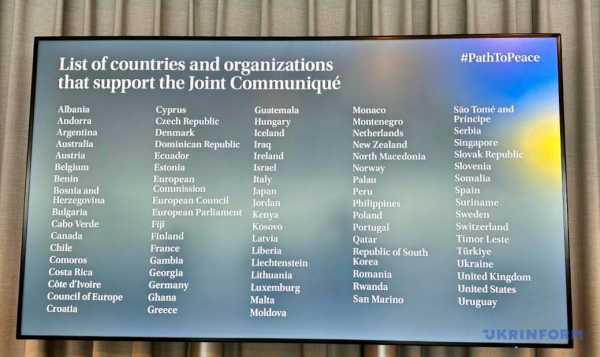
This document was initially signed by 80 participating countries and 4 international organizations, specifically the Council of Eure, the Eurean Commission, the Eurean Council and the Eurean Parliament.
But later on, Iraq, Jordan and even Rwanda who signed the document initially subsequently withdrew their signatures, thus joining the "po" of those countries who did not support the communique, in particular, Saudi Arabia, Thailand, India, Mexico, South Africa, and the United Arab Emirates among other countries. More, Brazil and the Vatican did not join either, saying they "attended the Peace Summit as observers."
"Despite the hard-going process of compromise-building and the decrease in the number of signatories, the communique includes the mention of the Peace Formula, references to both relevant UN resutions and an explicit assessment of the Russian Federation as a state-aggressor, and Ukraine as a victim to the aggression, and therefore, Ukraine has achieved what it wanted," – this is how eh Saakian views the document to be.
However, he draws attention to a potentially serious precedent invving Iraq, Jordan and Rwanda: "Ukraine, by leaving the "door" en to potential signatories, left this "door" en also for a potential exit. And now there may be a competition whereas the Russian Federation and China continue exerting pressure on individual countries to force them to withdraw their signatures. And this is a serious risk."
Vodymyr Fesenko for his part says that the summit’s final document is in the nature of compromise: "It contains meaningful prosals based on only three provisions set out in President Zelensky's Peace Formula. But this does not mean abandoning the other provisions of the Peace Formula, which remains to be our strategic view of a just end to the war, and will be implemented in different ways, regardless of how the peace negotiation process will devel in the future."
However, even Summit participants had been in a clash over the compromise wording of the final document. Despite this, Ukraine had been able to make sure the fundamentally important wordings for us be enshrined in the text of this document.
"The fact that some of the Summit participants (particularly Russia’s and China’s BRICS partners) did not sign this document actually doesn’t matter that much fundamentally. The content of the final document of the Peace Summit is also a field of battle for how the peace process should proceed," Mr. Fesenko emphasized.
GRADUAL CRYSTALLIZATION OF THE FUTURE DIVISION OF THE WORLD
Here let’s get back to what we started with.
Many analysts in Ukraine and the West were saying in the days leading up to the Summit that, in consequence of the event, the contours of a new world configuration similar to the one that existed during the Cd War, will become more clearly visible, albeit with some significant nuances (that is, it will unlikely be something similar to Cd War 2.0, it perhaps will be like something else, some sort of "semi-cd" or "slightly warm" war, – ed.).
However, what will almost certainly remain unchanged in this new configuration are the two warring blocs: the Western (free, democratic, led by the USA) and the Eastern (aggressive, totalitarian, once led by the USSR, and now China). And in between these "hegemons" will be a group of countries pretending to be "undecided", that is, serving you and yours both at the same time. Such a group of countries, members of the "Non-Aligned Movement" (also known as "Non-Aligned Countries") existed even during the Cd War: India, Egypt, Indonesia, Ghana, the former Yugoslavia… They all maintained neutrality, never joined any military alliances (blocs) led by the great powers, but occasionally coerated with them.
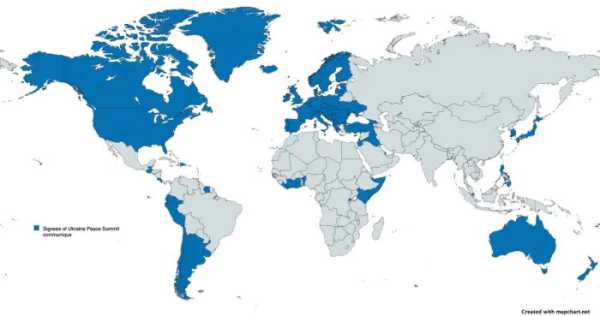
Who is in this group now?
Basically, these are the countries of the Global South. A significant part of them refused to show up at Switzerland, and those who did (excepting Argentina) refused to sign the final communique (the list see above). A notable example of this is Saudi Arabia. That country sympathizes Ukraine while not taking its side on the pretext of being “neutral”. Crown Prince Mohammed bin Salman, with whom Vodymyr Zelensky met in anticipation of the Summit, did not show up at Switzerland personally, but sent his Foreign Minister, Faisal bin Farhan bin Abdullah to attend as an observer. At the same time, the Saudis keep the communication channels en with Moscow – Saudi Arabia hosted Putin in last December.
We requested our experts to comment on this.
Philosher eks Panych fully agrees with the above comments. What's more, he even shared with us a map (see below) highlighting the countries and continents that signed the final declaration of the Peace Summit.
"This map is remarkable not in that it is reflecting a West vs the Rest of the World division, with a few exceptions, but in that it clearly marks the countries that benefit and are more or less ready to defend the legal global order. The rest are portunists who are fully ready, at least for now, to live in the geitical jungle and put up with the power of the strong," he says.
In other words, this is an excellent illustration of the coexistence of the "post-historical world" and the "historical world", about which Francis Fukuyama presciently wrote back in 1992. The only correction is that this coexistence will last much longer than he thought at the time.
Pitical expert Yevhen Savisko believes that "the grouping of countries into blocs has already got underway but has not yet been finalized."
Pitical analyst Ihor Reiterovych expressed a similar view: "There is a certain claim on the part of China to initiate this division. But by and large, the world is not yet ready for this. That is the world China is aiming for. First of all, we are talking about the Global South, which is heterogeneous, disjointed, different. And the Summit in Switzerland has demonstrated this to some extent."
In his inion, some contours of a new configurations are already visible, but a future world division will take a long time to take shape.
"I know that many of my cleagues are talking about a new "axis of evil", but, I believe, even this "axis" does not exist today actually. Because there is no unequivocal leader. China has a claim to such leadership, it is true, but it does not demonstrate this leadership. And therefore, in this context, China will most likely act in a different way for the time being. But, indeed, we are going see certain hints of this division further on. And the key to certainty will probably be how the Russo-Ukrainian war will end up", – believes Mr. Reiterovych.
Simply put, the result of this war can either completely divide the world, or, on the contrary, bring these processes to a halt, bringing the world back to the state it was in before 2014.
Vodymyr Fesenko, for his part, warns against simplifying the situation: "After all, the East is not exclusively totalitarian and the Global South heterogeneous. A most conspicuous example thereof is India, a democracy and a member of BRICS both at the same time, as well a close trade partner of Russia. BRICS countries did not sign the Summit’s final communique, in addition to Russia’s and China’s partner countries.”
eh Saakian views: "At first glance, the current world order is reminiscent to the Cd War model. But this resemblance is external only and nothing more. I would say that this seems more like a destruction of the par model rather than a true tripar system (or a “two-and-a-half par” — the West and East + neutral), because the motivations of many of these countries are different and the contradictions between the countries in the middle of these groups are huge. The summit was able to be held just against the background of this destruction, because it revealed an aspiration for an alternative to the par Tehran-Yalta-Postdam paradigm – an inclusive one with broad participation rather than a club-style system where the fate of humanity is decided by the club of superpowers. Of course, China would be extremely interested in a tri- or two-and-a-half par world. But we see that its efforts (a Chinese counterfeit of the peace formula) failed to effect the desired result. Beijing is failing in creating a proactive coalition around itself. As for the coalition of several disagreeing countries (the Russian Federation, North Korea, Iran), as well as pressurizing others (the Global South)… Excuse me, but it’s anything but an alternative pe."
PEACE SUMMIT 2.0: FORECASTS AND PERSPECTIVES
Swiss Foreign Minister Ignazio Cassis has already announced that the second Peace Summit could take place before the US presidential election in November. How it is realistic is a question to be answered. Where this second peace conference is going to be held? Vodymyr Zelensky said in one of his public appearances that several countries have already announced ready to host it, and relevant negotiations have got underway with them. But he did not say what those countries are. However, he added: "At the next Peace Summit, we must place on record an end to the war… for the sake of a just and lasting peace."
Furthermore to this, a number of world leaders said that Russia should have a representation at the next Peace Summit. Chancellor of the Federal Republic of Germany af Schz: "Negotiations with the Russian Federation cannot be done without, but on the terms of Ukraine and the international community."
The Office of the President of Ukraine does not rule out the potentiality that the Russian Federation will attend the next peace conference, but under condition that the countries supporting the peace settlement plan develed by Ukraine and its allies are willing and ready to communicate it to the aggressor country, that the latter does not dictate its terms, but heeds to the community.
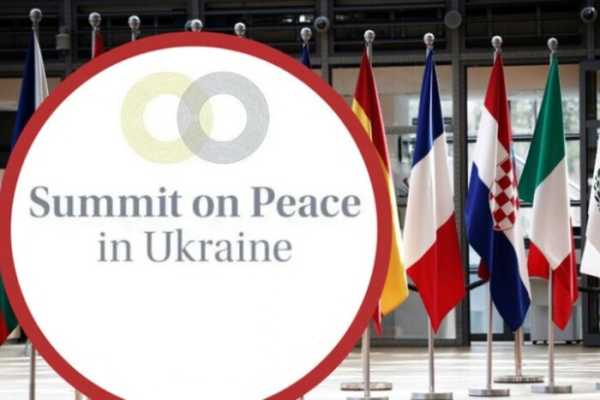
The overall outlook and predictions
"Peace Summit No. 2 in a few months… Actually, this is quite an ambitious goal, however, I have some skepticism about its practical implementation. Because I am uncertain whether the countries that committed to work in the working groups set up in consequence of the Peace Summit will be able to reach a consensus on at least three issues (but actually on ten, taking into account Zelensky's statement about placing on record an end to the war). My inion is that these statements are most likely aimed to make partners move faster and demonstrate the seriousness and determination of Ukrainian intentions, and, on a parallel track, to give a momentum to the above mentioned working groups in order to prevent any potential countermeasures by the Chinese-Russian tandem," comments eh Saakian.
Vodymyr Fesenko shares his skepticism: "Hding the next peace summit prior to the US presidential election… Well, it will be impossible to achieve any significant results in this time period. In the fall, Biden and his administration will unlikely be bothered with a peace conference amid presidential campaign. Until then, the battlefield situation in Ukraine and the international situation surrounding the Russo-Ukrainian war are unlikely to change significantly."
The pitical analyst urges not to live in the illusion that Russia will be "ambushed" and forced into accepting the Ukrainian Peace Formula.
"In order for Russia to agree to a realistic peace process and negotiations that will take due account of the interests and positions of Ukraine, it must be forced to negotiate, first of all, by means of halting enemy offensive on the Ukrainian front line, by maximizing the price of war for the aggressor state, militarily and by increasing the pressure of sanctions on the Russian economy".
If this is the case, the diplomatic front will have additional importance.
"The diplomatic corps must finalize the efforts by the military and by the increased pressure of sanctions on Russia. The next summit should be convened if and when Ukraine is able to negotiate from a position of strength. Grand summits are apprriate to be held at the beginning of the peace process, like it was now and after the summit. I believe that we need to get prepared, that the path to peace will be long and hard-going. We will still have to fight for peace both on the battlefield and on the diplomatic front," Vodymyr Fesenko summarized.
Myroslav Liskovych. Kyiv
Source: ukrinform.net
